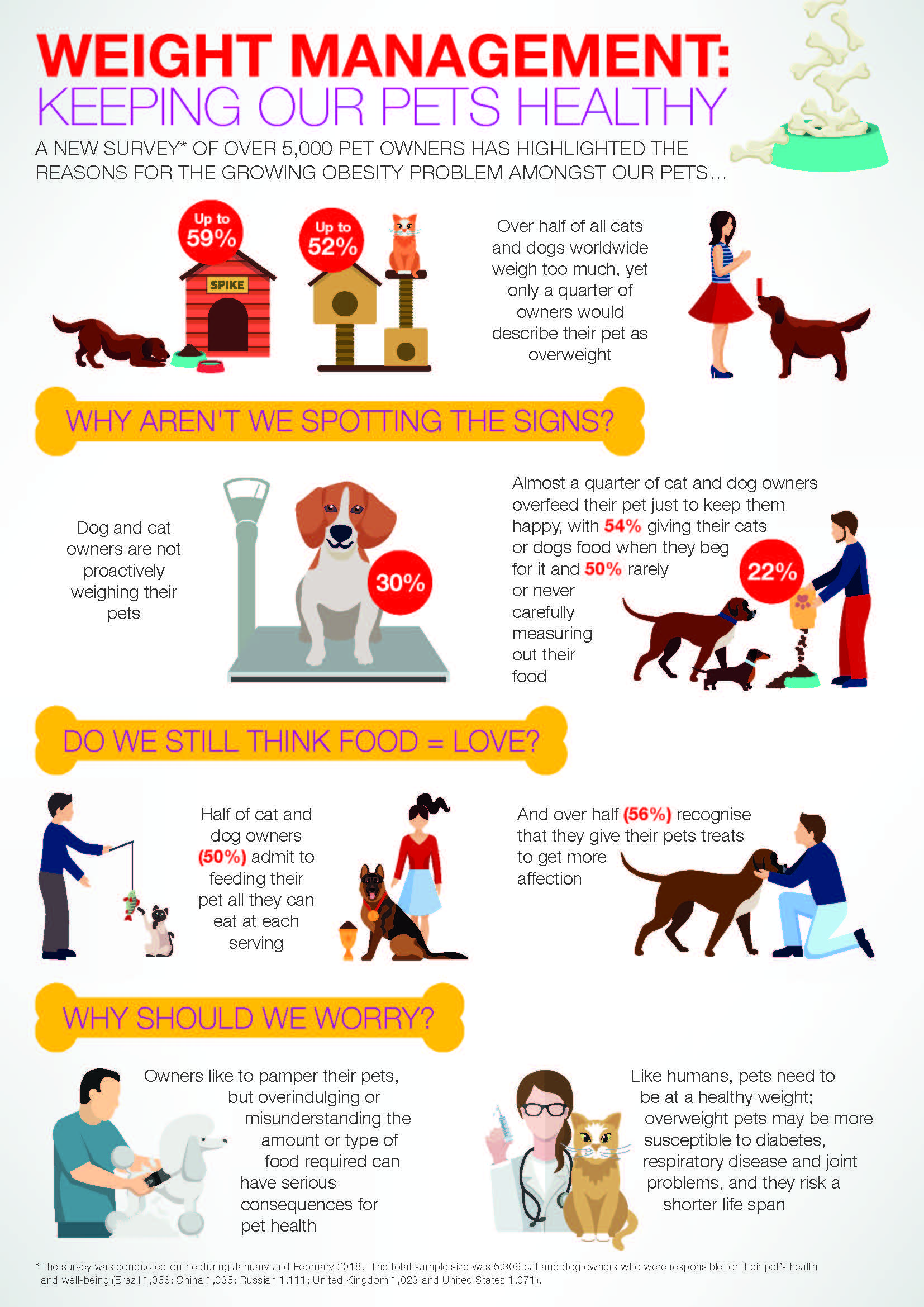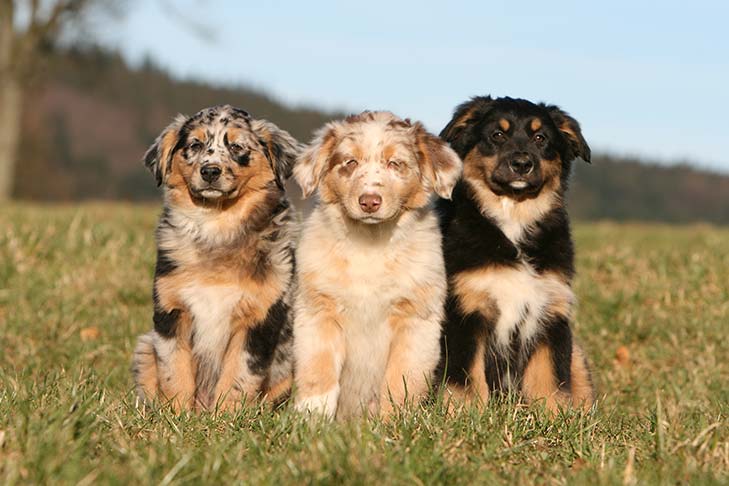As pet owners, we all want our furry friends to live long, healthy lives. However, in recent years, there has been a growing problem among pets in the United States - obesity. According to the Association for Pet Obesity Prevention, over 50% of dogs and cats in the US are considered overweight or obese. This is not just a cosmetic issue - it can lead to a range of health problems for our beloved pets, such as joint pain, respiratory issues, heart disease, and diabetes. In this article, we will explore the various factors that contribute to pet obesity and provide practical tips on how to prevent it.
Understanding Pet Obesity

Just like in humans, pet obesity is defined as an excessive accumulation of body fat. It occurs when energy intake (food) exceeds energy expenditure (exercise and activity). There are several factors that can contribute to this imbalance and lead to weight gain in our pets.
Dietary Considerations
The food we feed our pets plays a crucial role in their overall health and weight. Unfortunately, many pet foods on the market today are high in calories, low in nutrients, and often contain harmful additives. Just like humans, pets need a balanced diet that consists of whole foods to maintain a healthy weight. This means avoiding processed foods and treats and opting for high-quality, natural ingredients instead.
It's essential to read the nutrition label on your pet's food and understand what you are feeding them. Look for diets that list meat as the first ingredient and do not include fillers, by-products, or artificial preservatives. If you are unsure about which brand to choose, consult with your veterinarian for recommendations.
Exercise and Activity
Lack of exercise is another significant contributor to pet obesity. In the modern world, many pet owners have hectic schedules and may not have enough time to spend exercising with their pets. However, just like humans, our pets need regular physical activity to maintain a healthy weight and prevent obesity-related health problems.
Make sure your pet gets at least 30 minutes of exercise each day. This can include going for walks, playing fetch, running around in the yard, or even participating in organized activities such as agility training. Not only will this help prevent weight gain, but it will also provide mental stimulation and strengthen the bond between you and your pet.
Environmental Factors
In some cases, the environment we create for our pets can also contribute to weight gain. For example, if your pet spends most of their day indoors and has limited space to move and play, they are more likely to become sedentary and gain weight. Additionally, if there are multiple pets in the household, competition for food may lead to overfeeding or stealing food from other pets' bowls.
To prevent these environmental factors from leading to obesity, make sure your pet has enough space to move and play, and monitor your pet's food intake to avoid overfeeding or food theft.
Identifying Signs and Symptoms

As pet owners, it is essential to pay attention to our pets' weight and body condition. Often, pet obesity can go unnoticed until it becomes a significant health issue. Some signs and symptoms to watch out for include:
- Difficulty breathing or shortness of breath
- Lethargy and lack of energy
- Difficulty performing everyday activities such as jumping or climbing stairs
- Excessive panting after minor activities
- Increase in weight or size
- Difficulty grooming or reaching certain areas of the body
- Loss of appetite or constant begging for food
If you notice any of these signs in your pet, it's crucial to consult with your veterinarian to determine the best course of action.
Consequences of Pet Obesity

Pet obesity is more than just excess weight. It can lead to various health issues that can significantly impact your pet's quality of life. Some common consequences of pet obesity include:
Joint Problems
Excess weight puts a significant amount of pressure on your pet's joints, leading to joint pain, inflammation, and even arthritis. This is especially true for larger dog breeds, as their joints are already under a lot of stress due to their size.
Respiratory Problems
Just like in humans, carrying excess weight can make it difficult for pets to breathe, resulting in respiratory issues such as labored breathing, coughing, and wheezing. This can be particularly problematic for flat-faced breeds such as pugs and bulldogs, as they are already predisposed to respiratory problems.
Heart Disease
Obesity can also lead to heart disease in pets, as the excess weight puts a strain on their hearts and cardiovascular system. This can result in high blood pressure, heart failure, or other serious heart conditions.
Diabetes
The excess fat in the body can cause insulin resistance, leading to diabetes in pets. This chronic condition requires lifelong management and can significantly impact your pet's overall health if left untreated.
Prevention Strategies

Thankfully, there are many things we can do to prevent pet obesity from occurring in the first place. Here are some strategies you can implement to ensure your pet maintains a healthy weight.
Role of Veterinary Care
Regular visits to the veterinarian are critical for your pet's health, including weight management. Your veterinarian will assess your pet's weight and body condition and provide recommendations for a diet and exercise plan that suits their needs. They may also perform a physical exam to check for any underlying health conditions that may contribute to weight gain.
It's essential to follow your veterinarian's instructions for feeding, exercise, and monitoring your pet's weight. If your pet has a pre-existing health condition, such as arthritis or heart disease, your veterinarian may recommend specific dietary modifications or supplements to help manage their condition and prevent weight gain.
Maintaining a Healthy Weight
Once you have identified that your pet is at a healthy weight, it's crucial to maintain this weight through proper nutrition and exercise. Here are some tips for maintaining a healthy weight in pets:
Portion Control
Knowing how much food to feed your pet can be challenging, especially if they have different dietary needs or preferences. Speak to your veterinarian about the recommended portion sizes for your pet's breed and weight. Avoid free-feeding (leaving food out all day) and instead give your pet measured meals at specific times throughout the day.
Treats in Moderation
Treats should make up no more than 10% of your pet's daily calorie intake. Instead of store-bought treats, try giving your pet small pieces of fruits or vegetables as rewards. Not only are these healthier options, but they also provide essential nutrients.
Mealtime Management
If you have multiple pets in the household, it's crucial to monitor their mealtime to ensure each pet is getting the appropriate amount of food. This can include feeding them in separate rooms or using feeding stations with individual bowls.
Resources and Support
Maintaining a healthy weight in pets can be challenging, and it's essential to have a support system in place. There are many resources available to help pet owners manage their pet's weight, such as online weight management programs, support groups, and even mobile apps that track your pet's weight and activity levels. You can also seek guidance from your veterinarian or consult with a veterinary nutritionist for personalized advice.
Conclusion
Pet obesity is an increasingly prevalent issue in the United States, but it is not inevitable. By understanding the factors that contribute to pet obesity and implementing preventative strategies, we can help our pets live long, healthy lives. Remember to feed your pet a balanced diet, ensure they get enough exercise, monitor their weight regularly, and seek veterinary care if needed. By taking these simple steps, you can help prevent pet obesity and ensure your furry friend is happy and healthy for years to come.



